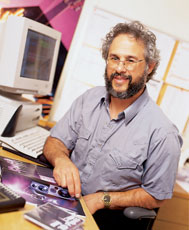|
|
May We Quote You? |
June 2000 |
|
To our chagrin, we've recently discovered some of our reviews and quotes from our reviews on manufacturers' Web sites in advance of the articles' publication. Even more disconcerting, the copies posted on the Web weren't the final, completely edited articles. What's going on here?
First of all, I am convinced that nobody was trying to pull a fast one. A few people apparently misunderstood our policy on "sampling" our editorial. In every case, the offending text was withdrawn as soon as we requested it. But why reprint partially edited reviews’Äîand without authorization, at that? For that matter, how do you get permission to reprint our articles? When you read quotes attributed to us, how do you know that they're legitimate?
Of course, we recognize and encourage "fair use" rights to reprint our work for educational purposes, commentary, criticism, parody, news reports, and the like. No permission is required for such reprints. So teachers relax’Äîyou can make copies for your class. And quoting us online in order to comment on an article is fine, too.
But a manufacturer that wants to reprint our articles for a marketing campaign has to request permission. If an entire article is going to be reprinted intact’Äîand provided for free to the public’Äîreprint permission is easy to get. (Selling reprints requires permission, too, but that is a different proposition.) We do insist that only the final, published version of the article be used and that it has been in print for at least one month before anyone reprints it.
We guard quotes more closely: the exact quote must be submitted for approval. We make sure that the quote is accurate and that the author's meaning hasn't been warped before we grant reprint permission.
So how did the partially edited articles get on the Web? As soon as an editor completes a product-related article, we e-mail it to the manufacturer for a fact-check. The manufacturer discusses factual miscues and other aspects of the article. We then make the changes that we deem appropriate.
After the fact-check, the article is further edited and proofread several times, so it may change significantly. But the manufacturer won't see those changes until the magazine hits the streets. The partially edited articles we found on the Web were fact-check copies.
We want to let companies use our material, while at the same time preserving the integrity of our editorial content and protecting consumers from misrepresentations of our views. Luckily, these mistakes don't happen often.
******************** Several confused readers have contacted us in search of Sanyiu Samples' Sounds of Silence sample CD, which Larry the O reviewed in our April issue. I hesitate to admit this, but the review was an April Fools' joke. We thought the looped digital silence and the mic inside the permafrost would be sure tip-offs, even if you missed the other hints. The sample library's creator was Jeok Sanyiu, and the company's Web URL was www.thejeoksanyiu.com. Translation: the joke's on you! We published three more April Fools' jokes in the same issue; did you find them? |
